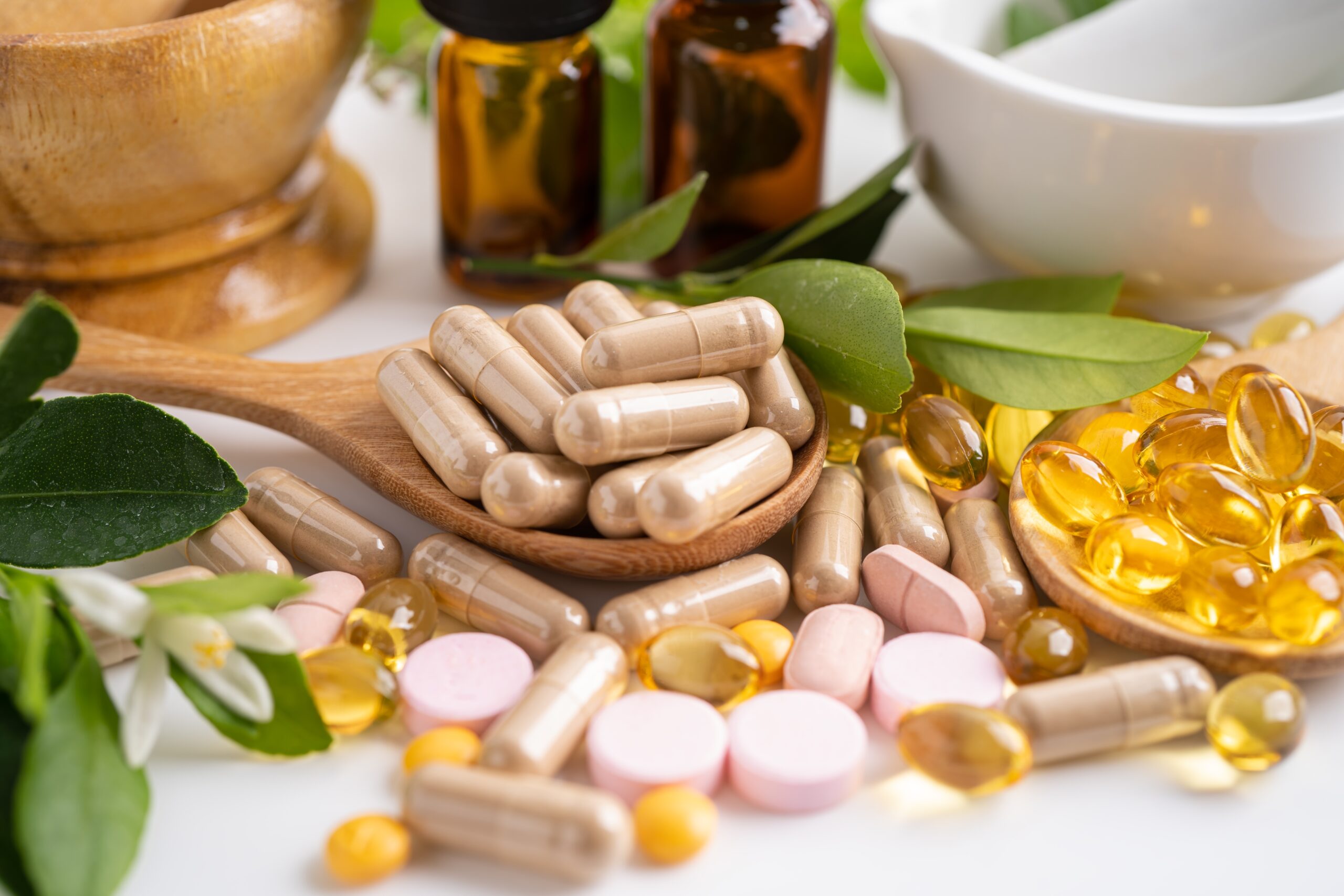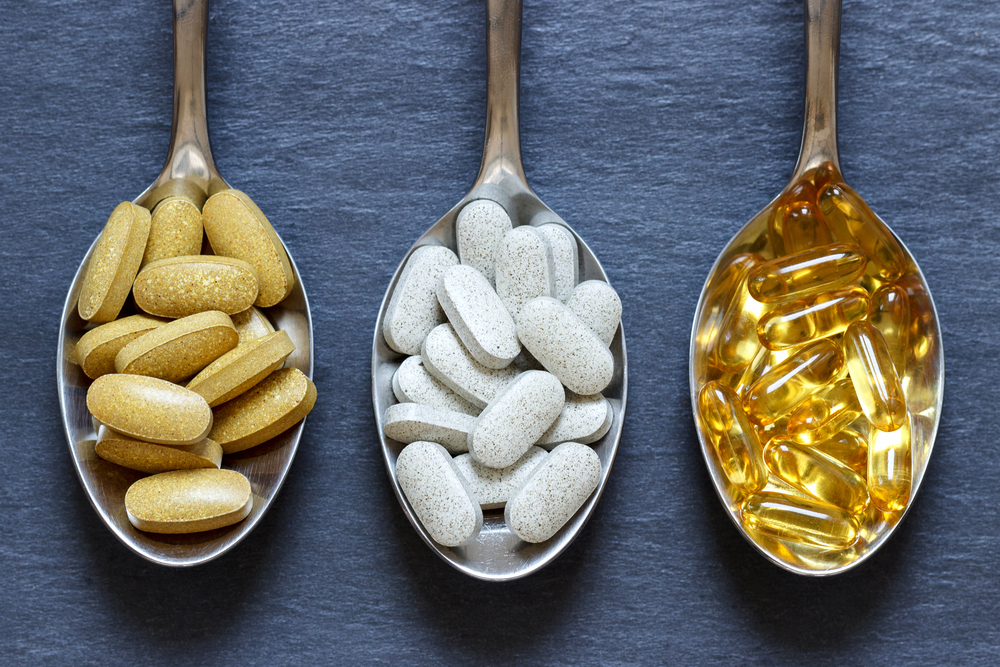

What? But supplements are healthy!
We need them in our diet so we can stay fit, full of vitality, and be happy living a disease free life – don’t we? Our body needs these important micronutrients because after all our food is nutrient poor due to our modern farming techniques.
Yes, in some cases, those statements are true.
Supplements do have benefits, but let’s not forget that the supplement business is a multi-million dollar industry that has somehow hoodwinked us into thinking we cannot possibly be healthy unless we supplement. Let’s take a look at the logic…
We know that we should avoid all processed foods – every diet has that in common. And this is because processed foods are made in a factory and contain numerous additives. Supplements are artificial and in no way can replace nutrition.
They have their own side effects like nausea, head-aches ,liver damage, dizziness etc. However, the predominant thinking on supplements, which are also highly processed and contain numerous murky additives, is go ahead, your body will thank you!
But wait a minute.
If we weren’t designed to eat processed foods, why does it logically follow that we were designed to eat boat loads of processed supplements?
The supplements on the market vary widely in terms of quality and almost all contain trace amounts of ingredients which are potentially just as harmful as the Frankenstein concoctions you see in the middle aisles of any grocery store in the United States.
In other words, why is the tripotassium phosphate in Cheerios a terrible thing, but the magnesium stearate in supplements a good thing? There are many other chemicals that can be harmful to the body. Silicon dioxide is a chemical that stops powders clumping and sticking but studies link it to lung disease if inhaled.
I love how the thought leaders in the health and wellness space freak out if you eat a pancake (refined grains!), but will often advocate for swallowing an elephant size dose of supplements every morning as part of an “anti-aging” routine.
Did you know that excess vitamin A can contribute to birth defects, reduce bone mineral density and damage the liver. Too much iron can cause diarrhea, nausea, dehydration, low blood pressure, dizziness, fever, chills, headache and flushing. Overdoing it on vitamin D can lead to hypercalcemia — or too much calcium in the blood.
Now, I know what you’re going to say.
“these additives are in such tiny amounts that they can’t possibly do us harm, you’re being paranoid, enjoy your supplements!”
However, the latest blow against calcium supplements was a report by German and Swiss researchers who followed almost 24,000 adults for an average of 11 years. They found that regular users of calcium supplements had an 86 percent increased heart-attack risk compared with those who didn’t use supplements.
On the other hand, there was a statistically significant 30 percent reduction of heart-attack risk among adults with a moderately high intake of calcium from food itself.
Why the disparity? The researchers theorized that the supplements may cause quick spikes in blood calcium levels that have been linked to risky lipid levels, whereas calcium in food is likely to be absorbed more slowly. Get calcium from dairy products, green leafy vegetables, and fish with edible bones, such as sardines.
You have to be extra careful when taking supplements if you’re taking medication. There seems to be the assumption that if it’s a supplement – it can’t possibly be harmful.
However, many herbs and vitamins interfere with medications, either causing potentially dangerous side effects or making the medication ineffective. Vitamin K can reduce the effectiveness of blood thinners; St. John’s Wort can reduce the effectiveness of antidepressants and birth control pills; and antioxidants, like vitamin C and E, can reduce the effectiveness of some types of chemotherapy.
But here’s the dilemma, chronic disease is growing at an alarming rate in this country. There are a myriad of studies showing this trend and yet there are many people out there who take in excess of 10 supplements a day because they think it’s helping them.
If we argue that dental amalgams leach mercury and should be avoided and glyphosate in our foods harm us and also should be avoided. Why does the same logic not apply to supplement additives?
Is it that hard to believe that those suffering from chronic illness, may also be sensitive to nutrient powders made in a factory and swallowed in mega doses far greater than what nature intended?
Again, this is not to say everyone, or even most, has issues with supplements. My focus here is on the heavy users who are looking for a solution to their ongoing sickness.
Even in cases where there are good studies looking at the impact of a particular nutrient on a given condition, it’s unheard of for the study authors to throw a mega cocktail of supplements at a control group. They study one or two nutrients at a given time to determine what works and what doesn’t.
Even in cases where a combination of nutrients works, as is the case with black pepper and Curcumin, there can be downstream effects that are rarely taken into account.
As an example, piperin (black pepper) increases Curcumin bioavailability, but also slows the body’s ability to metabolize certain drugs, which can lead to the build up of unhealthy levels of pharmaceuticals.
And if you think it’s the supplement additives that are the only potential issue, think again. Every popular supplement, no matter how beneficial, has reported side effects in at least a subset of the population. MyGene food has a neat list that states that:
And as this Scientific American article discusses, the very idea that taking antioxidants in supplement form is beneficial is being called into question by a growing number of scientists who believe some of the stress the body experiences in times of illness, i.e. oxidative stressors, are actually beneficial in the right context. The use of antioxidants can protect both good cells as well as bad cells, such as cancer cells.
The bottom line here is simple. If you’re a fan of supplements and find they provide benefits, keep taking them. If you are already getting the recommended amount of nutrients by eating a variety of fruit, vegetables, cereals, dairy, and protein, there’s little if any additional benefit from ingesting nutritional supplements. This is what I tell my cliets all the time.
However, if you are one of a growing number of people out there who have become trapped inside of a supplement marketing vacuum that tells you more is always better, exercise caution.
To the extent you can, understand the long term effects of the supplements you take.
If you’re taking a ton of these things and aren’t getting better, or even getting worse, maybe it’s time to stop and clear the deck for a while.
You might be surprised to find that you feel better.
If you would like to find out more about supplements and how you can use them in your life or for a specific health concern. Then lets chat. Sign up here for a complimentary consultation so we can determine what would suit you best.
In health,


The Holistic HIghway integrates traditional Western medical practices with Ayurveda medicine, creating a focus on prevention through nutrition, diet, and exercise; use of the latest genetic testing and other diagnostic techniques; and prescribed combinations of botanical medicines, supplements, therapeutic diets, detoxification programs, or stress-management techniques.

Integrative Health Expert | Ayurveda Practitioner | Author | Speaker
Kerry is a globally recognized leader in integrative medicine and the science of health known as Ayurveda. She is passionate about raising awareness of the need for a change in contemporary medicine that focuses on patient empowerment and a health-based (rather than disease-based) medical system.
Kerry is connected with The University of Pittsburgh Center for Integrative Medicine and remains a pioneer in the field of integrative medicine where she has developed a personalized system to manage chronic disorders by incorporating fundamental changes in diet, behavior, and stress while focusing on genetics.
This individualized program is so successful that many of her clients have achieved maximum healing and vitality after years of chronic problems!
More to Explore